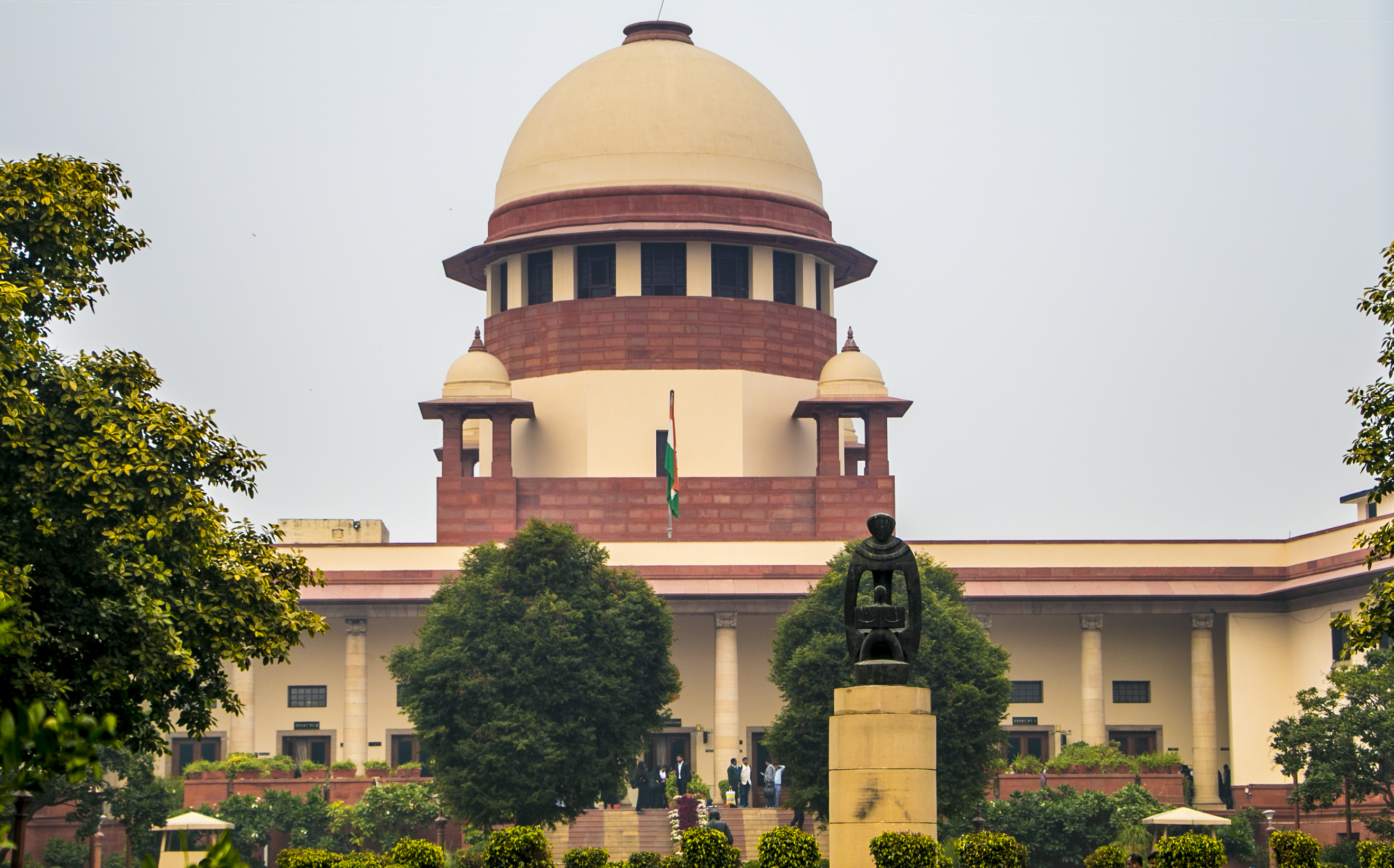
11 SUPREME COURT
The Supreme Court is a federal court. It's only seat is located at Delhi, Its bench can be established at other places also but so far it has not been established.
The judges of the Supreme Court are appointed by the President.
A person shall have the following qualification to become eligible for appointment as a judge of Supreme Court –
He has been a judge of a High Court for not less than five years in succession ; Or
He has been an advocate of a High Court for not less than 10 years in succession; Or
He is a distinguished jurist in the opinion of the President.
The judges of the Supreme Court retire from their office after attaining the age of 65 years.
The President can remove the Chief Justice and other judges on the basis of impeachment motion passed in the Parliament.
The salary of the Chief Justice is Rs. 33,000 and that of other judges is Rs. 30,000 per month.
The judges of the Supreme Court after their retirement and during their term of office, are not eligible to plead before any court/authority within the territory of India.
The judges of the Supreme Court cannot be transferred nor can they be demoted in office.
The Supreme Court is not bound to abide by the decisions of High Courts.
The Salary and allowances of the judges of Supreme Court are charged upon the Consolidated Fund of India
The cases involving the interpretation of the Constitution are decided only by the Supreme Court.
12 HIGH COURT
There is provision for a High Court in each State and each Union Territory but two or more States or two or more Union Territories or States and Union Territories, together, may establish a common High Court.
The judges of High Courts are also appointed by the President.
A person shall not be eligible to become a judge of a High Court unless such a person.
has been a judicial officer for not less than 10 years within the territory of India; Or
has been an advocate for not less than 10 years in a High Court in India.
The judges of High Courts retire from their office after attaining the age of 62 years.
The judges and the Chief Justices of High Courts are removed from office by the President in the same manner as adopted in the case of the Supreme Court.
The salary of the Chief Justice is Rs. 30,000 and that of other judges is Rs. 26,000 per month.
The judges of High Courts cannot plead before any court during the term of their office. After retirement they cannot plead before any court below the High Court. That means they can plead only before other High Courts and the Supreme Court.
The judges of High Courts can be transferred from the one High Court to the other High Court and may be promoted as the judges of the Supreme Court.
The High Courts are bound to abide by the decisions of the Supreme Court.
The salary and other allowances of the judges of High Courts are charged upon the Consolidated Fund of the States.
The cases involving the interpretation of the Constitution are not decided by the High Court.
13.POWERS AND JURISDICTION OF SUPREME COURT
Original Jurisdiction :- The original jurisdiction of the Supreme Court extends to all those cases, which can originate only in the Supreme Court. These include disputes.
between the Government of India and one or more States, or between two or more states;
between the Government of India and any State or States on the one side and one or more other States on the other;
Appellate Jurisdiction :- The appellate jurisdiction of the Supreme Court extends to those cases which are brought before it in the shape of appeal the judgement of lower courts viz., The High Courts of States.
Advisory Jurisdiction :- The Supreme Court may, if sought by the President, extend legal advice to him, which will not be binding upon the President.
Judicial Review :- The Supreme Court in India has been vested with the power of judicial review. Judicial review can be defined as the competence of a court of law to declare the constitutionality or otherwise of a legislative enactment. Being the guardian of the Fundamental Rights and arbiter of the constitutional conflicts between the Union and the States with respect to the division of power between them, the Supreme Court enjoys the competence to exercise the power of reviewing legislative enactments both of Parliament and the State's legislatures. The power of the Court to declare legislative enactment invalid is expressly provided by the Constitution under Article 13, which declares that every law in force, or every future law inconsistent with or in derogation of the Fundamental Rights, shall be void. Other Articles of the Constitution (131-136) have also expressly vested in the Supreme Court the power of reviewing legislative enactments of the Union and the States. It has to be recognized at the same time that the Supremacy of the Supreme Court is limited to the field where the legislative power of Parliament is circumscribed by limitations put upon it by the Constitution itself.
